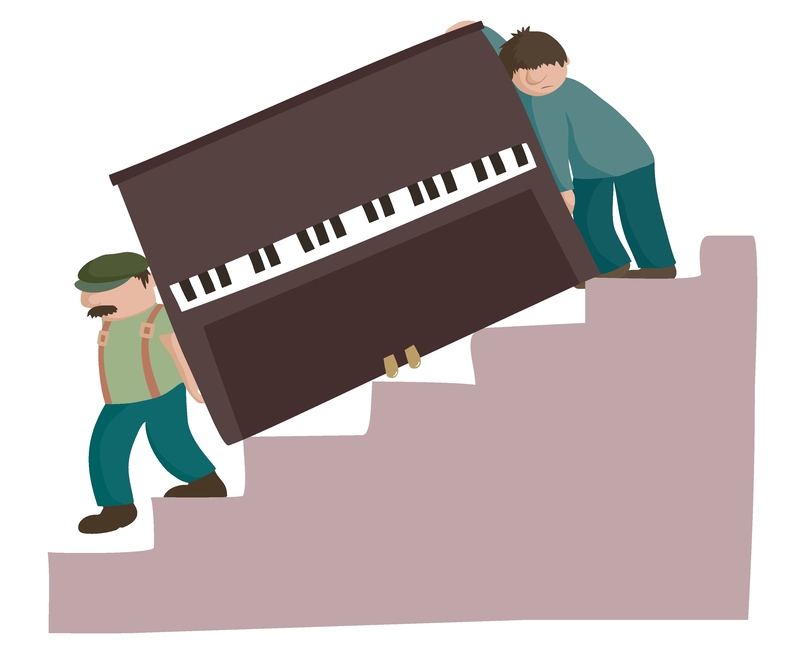Joy in Order: How Tidiness Enhances Mood
Posted on 27/02/2025
In a world that's constantly bustling with activity, it's easy for our living and working spaces to become disorganized. Yet, many people find that maintaining tidiness in their environment significantly impacts their mood and overall well-being. This phenomenon, often explored under the umbrella of environmental psychology, reveals that our surroundings can both influence and reflect our mental state.
The Science Behind Tidiness and Mood
Research studies have shown that clutter in our environment can lead to feelings of stress and anxiety. When our physical space is disordered, our minds can mirror this chaos. The brain prefers order and predictability, which helps it process information more efficiently and reduces cognitive load. According to a study published in the "Personality and Social Psychology Bulletin," individuals with cluttered homes were more likely to experience depression and fatigue than those with tidy environments.
Moreover, the act of cleaning and organizing itself can be therapeutic. Endorphins, often known as the brain's "feel-good" chemicals, are released during physical activities, and cleaning is no exception. Additionally, organizing tasks can give a sense of achievement and control, contributing to an overall positive and energized state of being. By aligning your physical space with your mental aspirations, you create an environment conducive to happiness and productivity.

The Psychological Benefits of a Tidy Environment
Having a tidy space isn't just about aesthetics; it also has profound psychological benefits. When you walk into a clean and organized room, you experience a sense of calm and relaxation. This serenity is essential for mental clarity and effective decision-making. Let's delve into some specific psychological advantages of maintaining a tidy environment.
Reduced Stress and Anxiety
Clutter can be a visual reminder of tasks left undone, leading to procrastination and stress. A tidy environment removes these constant visual cues, reducing stress and anxiety and allowing us to focus on the tasks at hand.
Enhanced Focus and Productivity
A clutter-free environment enhances focus and increases productivity. A clear, organized space minimizes distractions and helps the brain to concentrate better. This is particularly beneficial in workplaces where productivity and focus are crucial.
Improved Sleep Quality
A cluttered bedroom can interfere with your ability to relax and fall asleep. Tidiness in your sleeping area has been linked to better sleep quality, as it creates a more relaxing and peaceful environment conducive to rest.
Practical Tips for Maintaining Tidiness
While the benefits of a tidy environment are clear, maintaining such order can sometimes feel overwhelming. Here are some practical tips to help you keep your spaces organized, thereby enhancing your mood and overall well-being.
The One-Minute Rule
The one-minute rule is a simple yet effective tip: if a task takes less than a minute to complete, do it immediately. This can include actions like putting away your shoes, hanging up a coat, or washing a dish. These small tasks, when done regularly, can prevent clutter from accumulating and make larger cleaning sessions less daunting.
Declutter Regularly
Regular decluttering is essential for maintaining an organized space. For instance, perform a seasonal purge in which you get rid of items you no longer need or use. This not only frees up space but also ensures that your environment is filled only with objects that serve a purpose or bring you joy.
Have a Designated Place for Everything
Make sure every item in your home or workspace has a designated place. This practice makes it easier to put things away and find them when needed, significantly reducing the time and stress associated with searching for misplaced items.
Incorporating Tidiness into Daily Routine
Integrating tidiness into your daily routine doesn't have to be overwhelming. By making a few small changes, you can create lasting habits that will contribute to a more organized and happier life.
Start Your Day with a Tidy Space
Start your day by tidying up your immediate environment. Making your bed in the morning, for instance, sets the tone for an organized day and offers a sense of accomplishment right from the start.
End Your Day with a Quick Cleanup
Allocate a few minutes at the end of each day to tidy up. This could include washing dishes, organizing your desk, or putting away clothes. Ending your day with a clutter-free space can enhance your mood and make the next day's start more pleasant.

Tidiness and Social Relationships
Having a tidy environment can also have a positive impact on your social relationships. Welcoming friends or family into a clean, organized home can make social gatherings more enjoyable and stress-free.
Improved Social Interactions
A tidy space can serve as a more inviting environment for guests. When you're not worrying about clutter, you can focus more on your interactions, creating more meaningful and enjoyable social experiences.
Shared Responsibility
If you live with others, maintaining a tidy space can foster a sense of shared responsibility and cooperation. This can improve relationships and make living arrangements more harmonious.
Conclusion: The Joy of Order
Incorporating tidiness into your lifestyle offers myriad benefits for mental health and overall well-being. The connection between an organized environment and a positive mood is supported by both research and anecdotal evidence. Whether it's through reduced stress, improved focus, better sleep, or enhanced social interactions, the advantages of maintaining a tidy space are far-reaching.
By implementing small, manageable changes such as the one-minute rule, regular decluttering, and having designated spaces for items, you can create an environment that not only looks better but also feels better. Tidiness indeed brings joy, contributing to a more peaceful, productive, and happy life.







